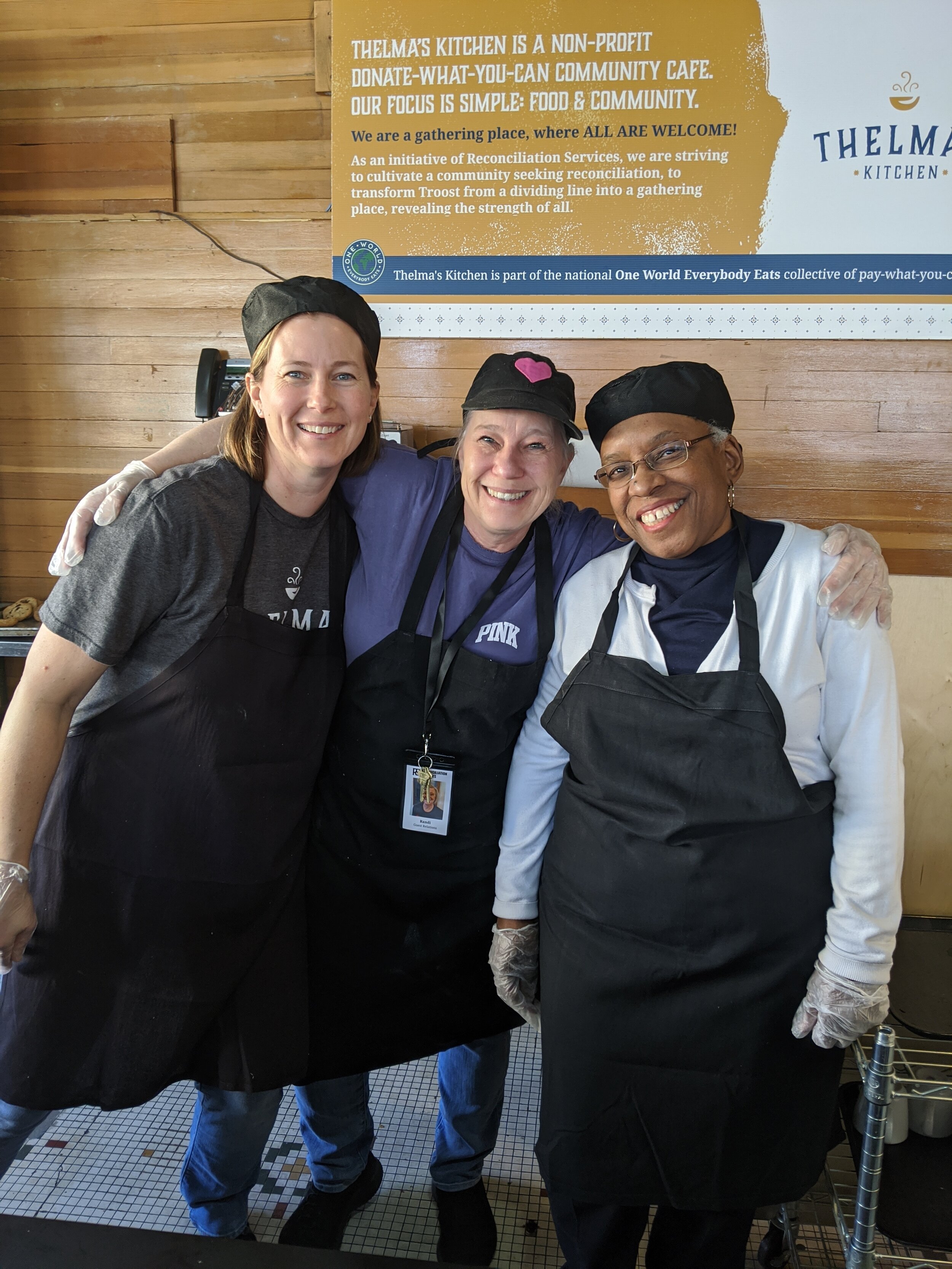
Why We Are Here
On a daily basis, we see our neighbors facing great struggles to survive and care for themselves and their families. We also see hidden strength being revealed in these neighbors as we sit beside them and learn their stories.
Anonymous self-reporting by RS clients indicates 59% witnessed violence recently; 53% are victims of violence; 36% have been convicted of a crime; 5% are currently in a gang; 69% of RS clients use tobacco, 14% use illegal drugs; and 6% feel in danger at home.
The high crime rate and lack of retail opportunities along Troost Avenue make the area uneven in its foot traffic, adding to a sense of abandonment and lack of safety, further discouraging community engagement. Our community is also living with the aftereffects of generational and systemic racism and trauma. Pressure from development and a shortage of low-income housing in our area has also increased the burden on those who are homeless and at-risk of homelessness. We are well known throughout the city for our willingness to engage and work persistently with those possessing compounded, complex needs and difficulties, or those who have alienated themselves from other sources of assistance because of distrust, mental illness, or trauma-induced PTSD.
Many of our clients are slow to trust and require intensive support in order to succeed. That is why RS ensures that at every step throughout our process, client needs are addressed and their goals for recovery and stability are achieved. We guide clients from a place of urgent need to securing more lasting solutions, like: needed ongoing medical care or insurance; coordinating appointments and transportation to and from them; accessing stable housing; applying for needed benefits or disability; help with financial management and budgeting; advocacy within the court system; and guidance in establishing additional services, systems, and benefits to ensure self-sufficiency. We accept neighbors as they are and walk with them all along their journey to well-being, from the time they walk into Thelma’s Kitchen, through receiving social services, through therapy and group support, and on to living a restored, healthier, more connected life.
A Message from Father Justin
I’ll never forget when I learned that the land Reconciliation Services sits on at 31st and Troost was once at the heart of the Osage nation and at one time was only a stone’s throw from the master’s big house on the Porter Plantation where nearly 100 African slaves endured forced labor.
You see, the racial and economic division that Troost symbolizes today is nothing new. Its roots run deep into the scarred soil of the 200-year history of Troost.
The intersection of 31st and Troost is an iconic corner to say the least. It’s a symbol of our city’s history, but also of the potential of our future. In order to be the city we aspire to be, we have to get Troost right. It’s going to take more than poverty programs to heal this division in Kansas City. It’s not enough to address the blight of the buildings only. We must also address the blight of the heart. It’s going to take true reconciliation with at least three distinct movements:
We must cultivate a community seeking reconciliation—be willing to listen deeply to understand how certain things of the past impacted other families and shaped their lives and struggles today.
We need to acknowledge the painful things that have happened on Troost as a starting place for healing, but also celebrate the good and beautiful things we find and build upon them.
We all need to share what we can to reduce the most extreme disparities and alleviate the suffering in our city.
One walk around our block and you know that the disparities in our community are real. Kansas City is one of the top five most economically and racially segregated cities in America according to a recent study. In Kansas City, 23% of African Americans live below the poverty line compared to only 6% of whites. This fact isn’t happenstance or simply caused by race, place, and culture. History and policy played a role in shaping this landscape that has yielded such an uneven harvest.
While these disparities have been persistent, they need not be permanent. Last year, RS staff and hundreds of volunteers worked together to build relationships and care for 5,150 men, women, and children living in poverty, mostly on the east side of our city.
Since the 1980’s our goal has been to transform Troost from a dividing line into a gathering place, a place of healing and comfort. A place where guests, volunteers, and staff can come and find their strength.
In Dutch the word "Troost" means comfort. And that’s how we see it here.
RS is a place where people can begin to build relationships, begin to acknowledge our past and celebrate our diverse strengths, begin to address the disparities that exist and cause economic impact that will enable an entire city to thrive. As we work together as individuals, as agencies, as businesses, and as a community, we will find all ships can rise together.
For Those We Serve,
Father Justin
Executive Director


